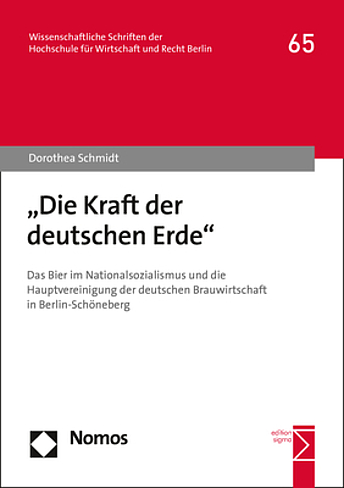englischThe concern among some during the 1932/1933 elections that ‘Hitler means war’ was confirmed when military spending increased considerably under the National Socialist government. Systematic rearmament helped reduce unemployment, but except for the establishment of the Kraftdurch Freude (Strength through Joy) programme, little progress was made in improving Germans’ quality of life despite prominent campaign promises. For the majority of the population nutrition levels and consumption remained poorer than in other developed countries—however, this was not the case with beer. Breweries’ output increased and quality remained high, even in wartime. While the Hauptvereinigung der deutschen Brauwirtschaft, part of the Reichsnährstand (a government body set up in Nazi Germany to regulate food production) located in Berlin-Schöneberg, was striving to lower consumption, the Wirtschaftsgruppe Brauerei, dominated by the brewers, proved to be more assertive. What explains these dynamics between rival groups during the National Socialist era?
„Hitler bedeutet Krieg“ – das erkannten anfangs nur wenige, doch bald nach 1933 setzte die zunehmende Aufrüstung ein. Damit ging zwar die Arbeitslosigkeit zurück, aber das bessere Leben, das Angehörigen der „Volksgemeinschaft“ versprochen wurde, blieb mit wenigen Ausnahmen wie den Freizeitangeboten von Kraft durch Freude ein leeres Versprechen. Für die meisten blieb die Ernährung deutlich frugaler als in anderen entwickelten Ländern, nur beim Bier war es anders. Der Ausstoß der Brauereien nahm laufend zu und auch die Qualität des Gerstensaftes blieb bis weit in die Kriegszeit hinein hoch. Dabei spielten konkurrierende Organisationen innerhalb des NS-Apparates eine Rolle. Die Hauptvereinigung der deutschen Brauwirtschaft, die in Berlin-Schöneberg ansässig war und zum Reichsnährstand gehörte, bemühte sich um eine Dämpfung des Konsums, aber die Wirtschaftsgruppe Brauerei, in der die Brauer das Sagen hatten, erwies sich als durchsetzungsfähiger. Warum war das so?


